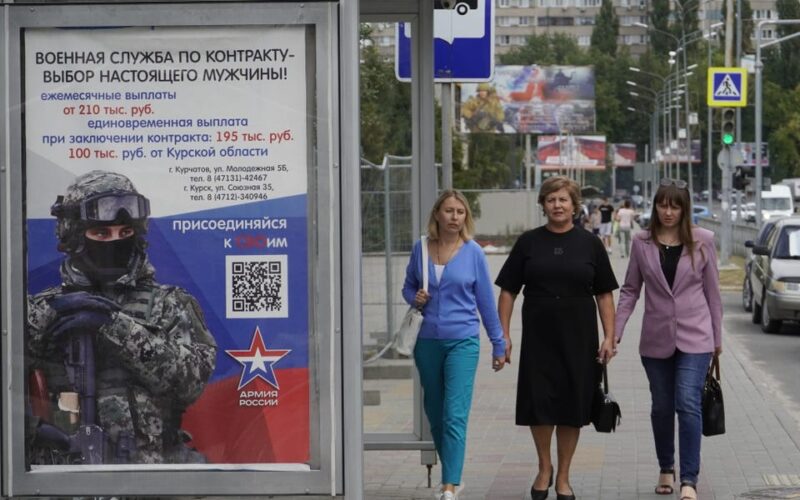- Russia’s labor shortage has businesses turning to teens and retirees to fill positions.
- Openings for workers as young as 14 or older than 55 have jumped.
- The nation was short around 5 million workers last year, Russia’s Academy of Sciences estimated.
Russia’s wartime economy is dealing with a difficult labor shortage, and the problem is pushing companies to broaden the age range of new hires as they look to fill their ranks.
An analysis cited by the Russian news site Nakanune showed that job openings tailored to “young applicants” — as young as 14 — soared 119% year-over-year in the first quarter. That adds to last year’s 289% increase, with openings for young workers rising from 14,500 to 42,000, the analysis found.
In catering and retail, the demand for workers between the ages of 16 and 18 has doubled, Bloomberg reported, citing an analysis from the Russian ad agency Avito.
Demand is also growing for older workers. Openings for specialists over the age of 55 climbed 65% in the culture and education sectors in the third quarter, while openings for specialists in the services sector rose 12%, according to a study viewed by the Russian state-owned news agency TASS.
The average age of specialists has also climbed by three to six years since 2022, per Bloomberg, citing an analysis from the Russian recruiting agency SuperJob.
Russia has also dialed back rules to allow younger people to work, or to allow retirement-age people to continue working.
Last year, Putin approved the employment of workers as young as 14 in some circumstances, though Russia’s legal working age is still technically set at 16 years old.
In 2018, Russia raised the retirement age from 60 to 65 for men and from 55 to 63 for women. The nation also plans on raising pension payments for working retirees early next year, with retirement-age people who choose to work potentially receiving an average minimum increase of 1.3 million rubles a year, or $12,264, according to estimates from Russia’s Deputy Prime Minister.
Russia’s working-age population took a hit in 2022, when millions of Russians fled the nation after the start of the war in Ukraine. The nation is short around 2 million workers, Bloomberg reported, citing an analysis from FinExpertiza, one of the nation’s largest auditors. Last year, the Russian Academy of Sciences estimated the nation was short around 5 million workers.
Meanwhile, around 73% of businesses are experiencing a staffing shortage, according to polls conducted by Russia’s central bank.
Source link
lol

